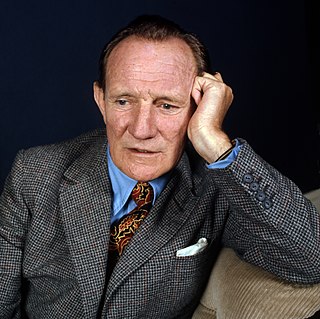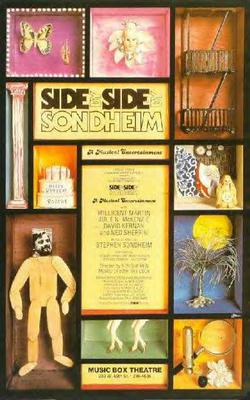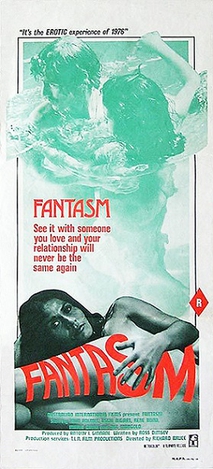Related Research Articles

Trevor Wallace Howard-Smith was an English stage and screen actor. After varied work in the theatre, he achieved leading man star status in the film Brief Encounter (1945), followed by The Third Man (1949), portraying what BFI Screenonline called “a new kind of male lead in British films: steady, middle-class, reassuring…. but also capable of suggesting neurosis under the tweedy demeanour.”

Flirting is a 1991 Australian coming-of-age comedy drama film written and directed by John Duigan. The story revolves around a romance between two teenagers, and it stars Noah Taylor, who appears again as Danny Embling, the protagonist of Duigan's 1987 film The Year My Voice Broke. It also stars Thandiwe Newton and Nicole Kidman.

They're a Weird Mob is a 1966 Australian comedy film based on the 1957 novel of the same name by John O'Grady under the pen name "Nino Culotta", the name of the main character of the book. It was the penultimate collaboration of the British filmmakers Michael Powell and Emeric Pressburger.

Head On is a 1998 Australian LGBT-related romantic drama film directed by Ana Kokkinos, who wrote the screenplay with Andrew Bovell and Mira Robertson. The film is based on the 1995 novel Loaded by Christos Tsiolkas. The film stars Alex Dimitriades, Paul Capsis, Elena Mandalis and Damien Fotiou. The film tells the story of Ari (Dimitriades), a dissolute 19-year-old second generation Greek-Australian in Melbourne. Ari is caught between his conservative Greek background and modern Australia, amid his homosexual desire.
Gerard Maguire also credited as Gerard McGuire, is an Australian actor, producer and screenwriter best known for his role in Prisoner as Deputy Governor, Jim Fletcher. Often appearing on Australian television police dramas and soap operas throughout the 1970s and 80s, he is also one of Australia's top voice actors, voicing numerous commercials and narrations during the 1990s and early 2000s.

Marjorie Morningstar is a 1958 American drama film directed by Irving Rapper from a screenplay by Everett Freeman, based on the 1955 novel of the same name by Herman Wouk. The film tells a fictional coming-of-age story about a Jewish girl named Marjorie Morgenstern in New York City in the 1950s, chronicling her attempts to become an artist—exemplified through her relationship with the actor and playwright Noel Airman. The film stars Gene Kelly and Natalie Wood, with Claire Trevor, Ed Wynn, Everett Sloane, Martin Milner, and Carolyn Jones.

Side by Side by Sondheim is a musical revue featuring the songs of composer Stephen Sondheim. Its title is derived from the song "Side by Side by Side" from Company.
Backstage is a 1988 Australian film starring American singer Laura Branigan. The film was written and directed by Academy Award nominee Jonathan Hardy, who had also written Breaker Morant.
Noel Ferrier AM was an Australian television personality, comedian, stage and film actor, raconteur, and theatrical producer. He had an extensive theatre career which spanned over fifty years.
Petersen is a 1974 Australian drama film directed by Tim Burstall.
Eliza Fraser is a 1976 Australian bawdy adventure drama film, directed by Tim Burstall and starring Susannah York, Trevor Howard, Noel Ferrier and John Castle. The screenplay was written by David Williamson.

The Breaking of Bumbo is a 1970 British comedy film directed by Andrew Sinclair and starring Richard Warwick, Joanna Lumley, Jeremy Child and Edward Fox. The screenplay was by Sinclair, a former Coldstream Guards National service officer, adapted from his 1959 novel of the same name.
The Highest Honour is a 1982 Australian/Japanese co-production about Operation Jaywick and Operation Rimau by Z Special Unit during World War II.

Nymphomaniac MANIAC onscreen and in advertising) is a 2013 erotic art film written and directed by Lars von Trier. The film stars Charlotte Gainsbourg, Stellan Skarsgård, Stacy Martin, Shia LaBeouf, Christian Slater, Jamie Bell, Uma Thurman, Jean-Marc Barr, Willem Dafoe, Connie Nielsen, and Mia Goth in her debut. Separated as two-part films, the plot follows Joe, a self-diagnosed "nymphomaniac," who recounts her erotic experiences to a bachelor who helps her recover from an assault. The narrative chronicles Joe's promiscuous life from adolescence to adulthood and is split into eight chapters told across two volumes. The film was originally supposed to be only one complete entry, but, because of its length, von Trier made the decision to split the project into two separate films. Nymphomaniac was an international co-production of Denmark, Belgium, France, and Germany.

Scobie Malone is a 1975 Australian erotic mystery film based on the 1970 novel Helga's Web by Jon Cleary and starring Jack Thompson and Judy Morris.

Fantasm is a 1976 Australian softcore pornographic film, directed by Richard Franklin under a pseudonym. It was followed by a sequel, Fantasm Comes Again, the following year, directed by a pseudonymous Colin Eggleston.
Great Expectations: The Untold Story is a 1987 Australian period drama miniseries, which was later re-edited as a feature film.
The Perfectionist is a 1981 play by David Williamson. It was adapted into a film for television directed by Chris Thomson in 1985.
No Room to Run is a 1977 Australian television film about an American businessman who kills a man in Sydney. The lead actors, writer, producer and director were all American. It stars real-life husband and wife Richard Benjamin and Paula Prentiss.

The Emperor Jones is a 1960 Australian TV play based on the play The Emperor Jones by Eugene O'Neill. It starred Joe Jenkins, a dancer who was living in Australia. He played a triple role.
References
- 1 2 3 Andrew Pike and Ross Cooper, Australian Film 1900–1977: A Guide to Feature Film Production, Melbourne: Oxford University Press, 1998 p256
- ↑ "$300,000 FEATURE FILM". The Canberra Times . 1 August 1970. p. 17. Retrieved 10 December 2013– via National Library of Australia.
- 1 2 Warwick Freeman, 'Demonstrator - Filmmakers Notes', ACMI, 8 May 2008 Archived 28 March 2012 at the Wayback Machine accessed 22 Sept 2012
- ↑ Ferrier, Noel (1985). The Memoirs of Noel Ferrier: There Goes Whatsisname. The MacMillan Company of Australia. p. 69.
- ↑ David Stratton, The Last New Wave: The Australian Film Revival, Angus & Robertson, 1980 p8